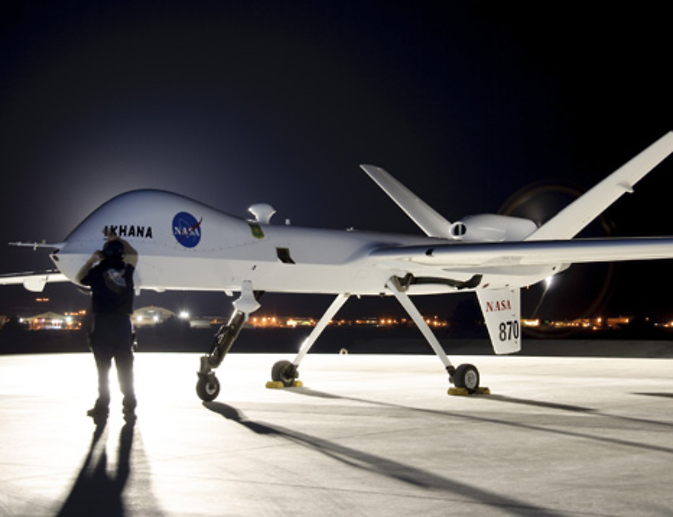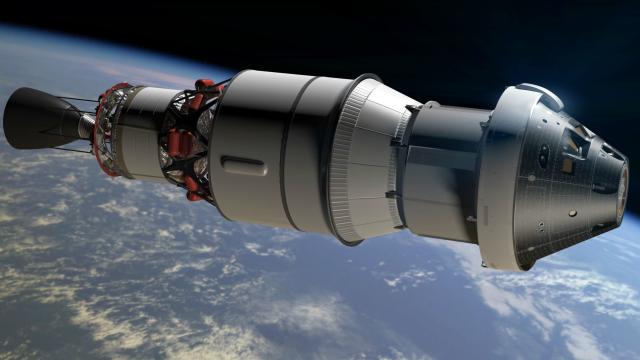NASA’s Orion spacecraft, arguably the most advanced spacecraft ever constructed, is scheduled for liftoff today from Kennedy Space Center in Cape Canaveral, Florida. If successful, we could soon see the craft toting astronauts to the moon, Mars, and beyond. Follow along live.
You can watch the livestream right here. In the meantime, we’ll be updating the status of the flight, and you can read all about the craft itself below.
9:39am ET: The next possible launch window starts at 7:05am ET tomorrow, so we may not have to wait long.
9:36am ET: OK folks, sorry to disappoint; the launch is officially scrubbed for today.
9:34am ET: If you’re watching the stream it might be a little confusing that they’re counting down a launch; that doesn’t mean the valve issues have been resolved. It’s just the very latest they can possibly launch today, so they’re preparing in the event that the valves start working again.
9:29am ET: Launch time set at 9:44am ET pending those dang valves. Fingers crossed.
9:24am ET: The last test didn’t work; they’re going to cycle through the valves again. They have only got 20 minutes left in the launch window, so if this doesn’t work we’re going to have to wait.
9:11am ET: At least some good news; the Ikhana drone that will take video of the splashdown is airborne and ready to go. It will be hanging out at 27,000 feet, infrared cameras ready to go. It also looks pretty badass!

Picture: NASA / Tony Landis
9:07am ET: They’re going to pressurize the hydrogen tanks at 35psi for two minutes to take the slack out of the valves, then cycle through the valves again. The details of which aren’t quite as important as the clock, which we’re pretty close to racing against.
9:04am ET: They’re going to proceed with a new round of troubleshooting on the valves.
9:00am ET: The status of the left and center liquid hydrogen fill and drain valves is still unknown. They have got 44 minutes to figure out a game plan before the launch window closes.
8:49am ET: Sounds like success? Partial, anyway. The fill and drain valve that was giving Orion issues before appears to be improved after the cycling process; just waiting now to confirm that three others are also all clear.
8:41am ET: Quick word on what’s happening now: each booster has fill and drain valves; one of them malfunctioned, so they’re cycling through all of them five times to try to clear out any anomalies.
8:35am ET: The launch window closes at 9:44, so there’s still plenty of time for this to happen.
8:32am ET: After several launch delays for wind, NASA is addressing a mechanical issue; a valve didn’t close on one of the boosters, so they’re cycling through again to make sure all’s well.
